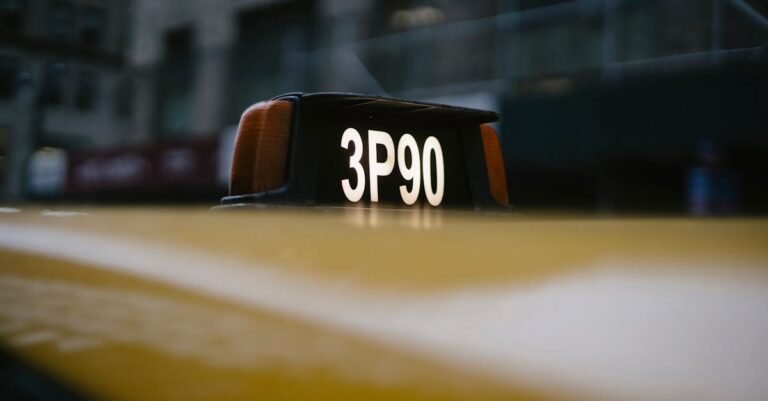Table of Content
Car Recalls: What You Need To Know
So, What Exactly IS a Car Recall?
Why Do Car Recalls Happen Anyway?
Who Issues These Recalls? Manufacturers vs. Government
How Do I Find Out If MY Car Has a Recall?
Okay, My Car Has a Recall. Now What? The Repair Process
Can I Just Ignore a Recall? (Spoiler: Bad Idea!)
What About Recalls on Used Cars?
Does a Recall Affect My Car’s Value?
Conclusion: Staying Safe and Informed
Frequently Asked Questions (FAQs)
Car Recalls: What You Need To Know
Ever get that official looking letter in the mail, maybe tucked between junk mail and bills, talking about your car? Or perhaps you heard a news report mentioning your car’s make and model? The topic? A recall. It sounds serious, maybe even a little scary. What does it mean? Is your car safe to drive? Will it cost you an arm and a leg to fix? Don’t worry, you’re not alone in wondering these things. Car recalls are actually more common than you might think, and understanding them is key to keeping yourself, your passengers, and others on the road safe.
Think of a recall like your car manufacturer raising a hand and saying, “Oops, we found something that isn’t quite right, and we need to fix it.” It could be something minor, or it could be a serious safety issue. Either way, knowledge is power. Let’s dive deep into the world of car recalls, untangle the jargon, and figure out exactly what you need to know and do if your vehicle is ever part of one.
So, What Exactly IS a Car Recall?
At its core, a car recall happens when a manufacturer or the National Highway Traffic Safety Administration (NHTSA) – the government agency overseeing vehicle safety in the US – determines that a specific vehicle model (or sometimes a range of models across different years) has a safety related defect or doesn’t comply with federal safety standards. It’s essentially a formal announcement that something needs correcting.
This “something” could be anything from a faulty part in the engine, a problem with the brakes, wonky airbags, issues with steering, problematic seat belts, or even software glitches in today’s increasingly complex cars. The key takeaway is that the issue poses a potential risk. It might increase the chances of a crash, or it could make injuries more likely *if* a crash occurs. It’s not just about a weird noise or a cosmetic flaw; recalls are triggered by problems that could genuinely compromise safety on the road.
Why Do Car Recalls Happen Anyway?
You might wonder, with all the testing and engineering that goes into making cars, how do these defects slip through? Well, cars are incredibly complex machines with thousands of parts sourced from numerous suppliers. Sometimes, issues only become apparent after vehicles have been on the road for a while, driven in real world conditions, across varying climates and driving styles. There are two main buckets these reasons fall into:
Safety First: The Driving Force
This is the big one. The absolute primary reason for a recall is a defect that poses an unreasonable risk to motor vehicle safety. Think about the infamous Takata airbag recall – millions of vehicles recalled because the airbag inflators could rupture, sending metal fragments flying. That’s a clear and present danger. Other examples include faulty brakes that might fail, steering components that could break, fuel systems prone to leaks (increasing fire risk), or even software that controls critical functions acting unpredictably. If a component failure could directly lead to a loss of control, injury, or increase the severity of an accident, it’s prime recall territory.
Non Compliance Issues
Sometimes, a recall isn’t about a part actively failing, but rather because the vehicle or a piece of equipment doesn’t meet a specific Federal Motor Vehicle Safety Standard (FMVSS). These standards cover everything from headlight brightness and positioning to crash test performance and labeling requirements. For instance, if a car’s headlights are found to be slightly dimmer than the minimum standard allows, or if required safety labels are missing or incorrect, a recall might be issued to bring the vehicles into compliance. While maybe not as immediately dramatic as a brake failure, compliance with these standards is crucial for overall road safety consistency.
Who Issues These Recalls? Manufacturers vs. Government
It usually starts in one of two ways. Either the car company finds the problem themselves, or the government steps in.
Manufacturer Initiated Recalls
Believe it or not, the vast majority of recalls are initiated voluntarily by the vehicle manufacturers themselves. They have ongoing testing processes, they analyze warranty claims, they monitor customer complaints, and they investigate reports of component failures. If their internal investigations uncover a pattern suggesting a safety defect or non compliance, they have a legal obligation to report it to NHTSA and initiate a recall campaign. Doing so proactively often helps manage the situation better and maintain customer trust (or at least, mitigate damage to it).
The Role of NHTSA
NHTSA plays a critical watchdog role. They collect and analyze data from various sources, including consumer complaints filed directly with them, manufacturer reports, crash investigations, and independent testing. If NHTSA identifies a potential defect trend that the manufacturer hasn’t addressed, they can open an official investigation. This investigation might involve requesting detailed information from the manufacturer, conducting engineering analyses, and performing vehicle tests. If the investigation confirms a safety related defect or non compliance, NHTSA can formally request the manufacturer to issue a recall. If the manufacturer refuses (which is rare), NHTSA has the authority to order a mandatory recall. They act as the safety net, ensuring potential issues don’t fall through the cracks.
How Do I Find Out If MY Car Has a Recall?
Okay, this is the crucial part for you as a car owner. How do you know if *your* specific vehicle needs attention? Thankfully, there are several ways to check.
Your Car’s Fingerprint: The VIN
Every car has a unique 17 digit Vehicle Identification Number, or VIN. Think of it like your car’s social security number or fingerprint. It contains specific information about your car, including its make, model, year, and where it was manufactured. This VIN is the key to checking for recalls specific to your exact vehicle, not just the general model.
Where can you find this magical number? It’s usually located:
- On the driver’s side dashboard, visible through the windshield.
- On a sticker on the driver’s side doorjamb (where the door latches).
- On your vehicle’s registration documents.
- On your car insurance card or policy documents.
Once you have your VIN, you’re ready for the next step.
Checking Online Resources (NHTSA & Manufacturer Sites)
The easiest and most definitive way to check for open recalls is online.
NHTSA’s Recall Lookup Tool: Head over to the NHTSA website (NHTSA.gov/recalls). They have a fantastic, easy to use tool where you simply enter your VIN. It will search its database and tell you if there are any *uncompleted* safety recalls associated with your specific vehicle from the last 15 calendar years. It’s comprehensive and pulls data directly from manufacturers.
Manufacturer Websites: Most car manufacturers also have recall lookup sections on their own websites. You can usually find these in the “Owners” or “Service” sections. Again, you’ll typically need your VIN. Sometimes, these sites might provide additional details or allow you to schedule service directly.
It’s a good idea to check these resources periodically, maybe once or twice a year, or especially if you’re buying a used car. Don’t rely solely on getting a letter in the mail.
Don’t Ignore That Letter! Recall Notices in the Mail
Manufacturers are legally required to notify registered owners of affected vehicles by first class mail. This official recall notice will typically include:
- A clear statement that this is a safety recall notice.
- A description of the defect or non compliance.
- An evaluation of the risk associated with the problem.
- Instructions on how to get the problem corrected.
- Information that the repair will be performed free of charge.
- Contact information for the manufacturer and NHTSA if you have issues.
Seriously, do not toss these letters assuming they’re junk mail! Open them, read them carefully, and take appropriate action. If you’ve moved recently, make sure your vehicle registration information is up to date so these crucial notices reach you.
Okay, My Car Has a Recall. Now What? The Repair Process
Finding out your car has a recall might cause a moment of panic, but the process for getting it fixed is usually straightforward and, importantly, free.
Scheduling the Fix: Contacting the Dealership
Your recall notice will instruct you to contact an authorized dealership for your car’s brand to schedule the repair. You don’t have to go back to the specific dealer where you bought the car; any franchised dealer for that manufacturer should be able to perform the recall work. Call their service department, let them know you have a vehicle with an open recall (mention the recall number if you have it from the notice or online check), and find a time that works for you to bring the car in. Be aware that sometimes, especially for large recalls, there might be a wait for parts or appointments, so it’s best to call sooner rather than later.
Does It Cost Me Anything? (Spoiler: Usually Not!)
Here’s the best part: Safety recall repairs are performed free of charge to the vehicle owner. The manufacturer covers the cost of the parts and the labor involved in fixing the defect. This applies regardless of the vehicle’s age or mileage, and whether you’re the original owner or bought the car used. There are very few exceptions, usually involving older vehicles (typically over 10 years old *at the time the defect was determined*) or situations where the defect isn’t strictly safety related (like some emissions recalls, which might have different rules). But for standard safety recalls identified by NHTSA or the manufacturer, you should not pay a dime for the specific recall repair itself.
Important Note: While the recall repair is free, the dealer might identify other maintenance or repair needs your car has while it’s in the shop. They might offer to perform these services, but you are *not* obligated to agree to them, and they will be at your expense. Stick to the recall work if that’s all you want done.
How Long Will My Car Be Gone? Repair Timelines
The time required for a recall repair varies greatly depending on the complexity of the fix.
- Some recalls involve simple software updates or quick part swaps that might only take an hour or two.
- Others, like replacing an engine component or an airbag module buried deep in the dashboard, could take several hours or even a full day.
When you schedule your appointment, ask the service advisor for an estimated timeframe. They should be able to give you a general idea based on the specific recall procedure. In some cases, particularly for longer repairs or if parts are delayed, the dealership might offer a loaner vehicle or alternative transportation, but this isn’t always guaranteed and depends on the manufacturer’s policy and dealer availability.
Can I Just Ignore a Recall? (Spoiler: Bad Idea!)
You might think, “My car seems fine, maybe I don’t need to bother.” Please, resist that temptation! Ignoring a safety recall is risky business. Here’s why:
- Safety Hazard: The defect is real and could lead to component failure at any time, potentially causing a crash or increasing injury risk. Why take that chance with your life or the lives of others?
- Liability: If you knowingly ignore a recall and the defect causes an accident, you could potentially face increased liability.
- Resale Value: An outstanding recall can negatively impact your car’s resale value and make it harder to sell. Prospective buyers (and dealers) will check the VIN for open recalls.
- Inspection Issues: In some states, an unresolved safety recall might cause your vehicle to fail its state safety inspection.
Think of it like a doctor telling you about a potential health issue. Ignoring it doesn’t make it go away; it just increases the risk of serious consequences down the line. Getting the recall fixed is the responsible and safe thing to do.
What About Recalls on Used Cars?
This is a really important area. When you buy a used car, especially from a private seller or an independent (non franchised) dealer, there’s no guarantee that previous recalls have been completed. Federal law actually prohibits franchised dealerships from selling *new* cars with outstanding recalls, but the rules for *used* cars are much less strict for anyone other than a new car dealer selling a used car of the same brand they represent.
Therefore, if you’re buying used:
- Check the VIN: Before you buy, *always* check the VIN for open recalls using the NHTSA tool or the manufacturer’s website.
- Ask the Seller: Ask the seller (whether private or dealer) if they are aware of any open recalls and if they have documentation of completed recall repairs.
- Factor It In: If there’s an open recall, understand that you’ll need to take the car to an authorized dealer to get it fixed (for free). Factor this minor inconvenience into your purchase decision.
Don’t assume a used car is clear just because it’s being sold. Do your due diligence!
Does a Recall Affect My Car’s Value?
This is a common concern. Does having a recall history make your car worth less? Generally speaking:
- Unrepaired Recalls: Yes, an *open*, unrepaired safety recall will almost certainly decrease a car’s value and make it harder to sell. Buyers are wary of taking on a known safety issue.
- Repaired Recalls: Once a recall repair has been completed by an authorized dealer, its impact on value is usually minimal to negligible. The problem has been fixed according to the manufacturer’s specifications, often with improved parts. It shows the car has been maintained properly.
Think about it: a car with a successfully addressed issue is often better than one where a potential issue might still be lurking. Keep documentation showing the recall work was completed, as this can reassure potential buyers.
Conclusion: Staying Safe and Informed
Car recalls might seem like a hassle, but they are a vital part of our automotive safety system. They represent a commitment, whether prompted by the manufacturer or NHTSA, to fix problems that could put people at risk. By understanding what recalls are, why they happen, and how to check if your vehicle is affected, you empower yourself to take the necessary steps. Always check your VIN periodically, never ignore recall notices, and get any open recalls repaired promptly at an authorized dealer – remember, it’s free! Staying informed isn’t just about maintaining your car; it’s about protecting yourself, your passengers, and everyone else sharing the road. Drive safe!
Frequently Asked Questions (FAQs)
1. How long do I have to get a recall fixed? Is there an expiration date?
Generally, there is no expiration date for safety recalls. Manufacturers are obligated to perform the repair free of charge regardless of how long it’s been since the recall was announced, as long as the vehicle is still in operation. However, it’s always best to get it fixed as soon as possible for safety reasons.
2. What if I paid for a repair *before* a recall was announced for the same issue?
In many cases, manufacturers offer reimbursement programs for owners who paid out of pocket for repairs related to a defect before the official recall was issued. You’ll need to provide documentation (like repair invoices) proving you paid for the specific repair covered by the recall. Check the details in the official recall notice or contact the manufacturer directly for instructions on how to apply for reimbursement.
3. Can a dealership refuse to perform a recall repair?
An authorized franchised dealer for your vehicle’s brand should not refuse to perform a legitimate safety recall repair free of charge. If you encounter issues, like the dealer trying to charge you or claiming they can’t do it, contact the vehicle manufacturer’s customer service line directly. If that doesn’t resolve the issue, you can file a complaint with NHTSA.
4. Does a recall show up on a vehicle history report like CarFax?
Yes, open recalls typically appear on vehicle history reports. Completed recalls may also be noted. This is another reason why it’s crucial to get recalls fixed, as an open recall can be a red flag for potential buyers checking the vehicle’s history.
5. What if the manufacturer goes out of business? Who fixes the recall then?
This is a rare and unfortunate situation. If a manufacturer declares bankruptcy and liquidates, there may be no entity left to pay for recall repairs. NHTSA might provide information, but often owners are left without recourse for a free repair in these specific circumstances. Thankfully, this is not a common occurrence for major automakers.









